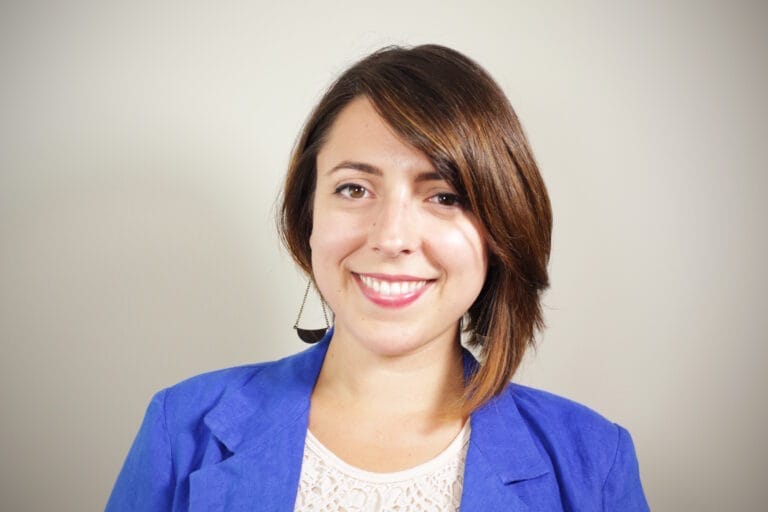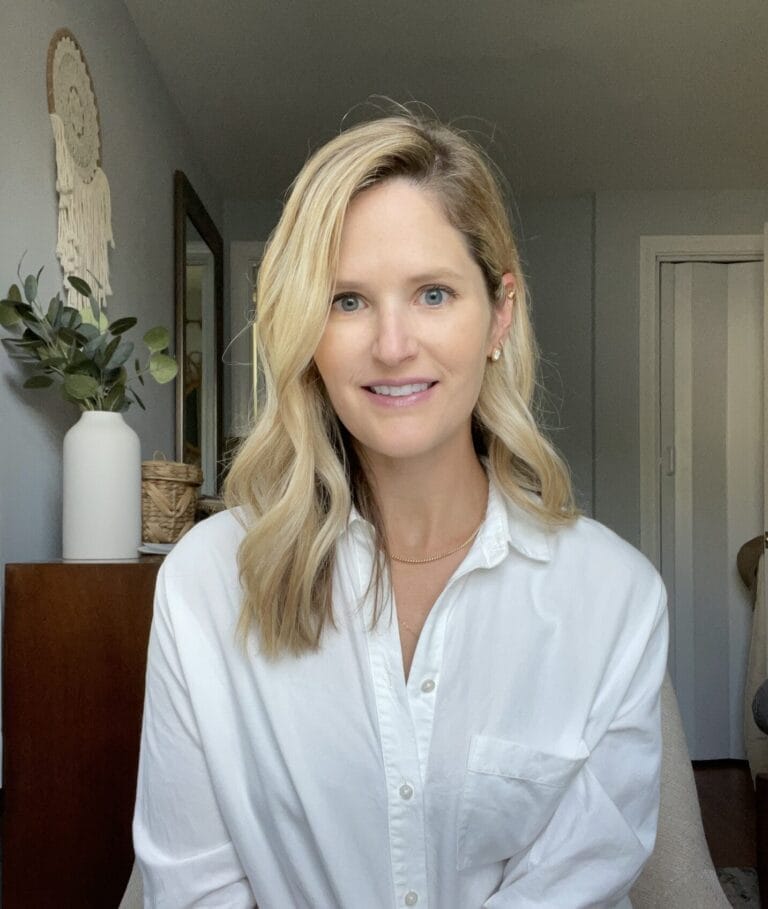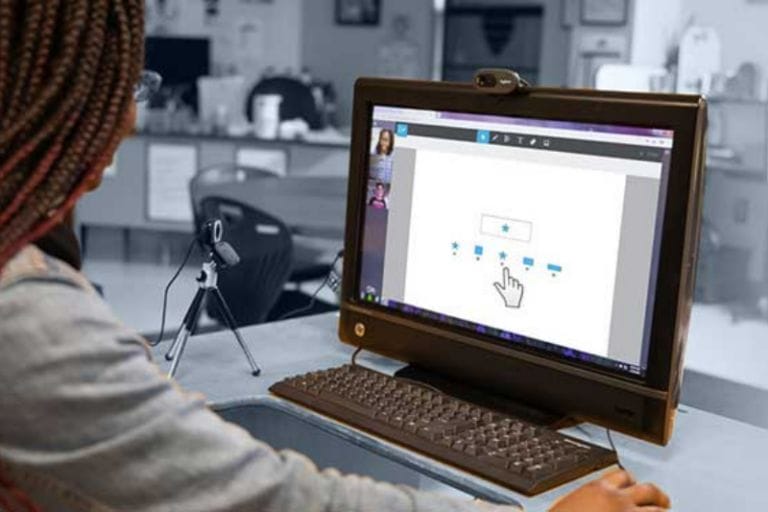
Alisson Reber, MA, CCC-SLP, did her undergraduate work at the University of Louisville and graduated with her MA from the University of Massachusetts, Amherst. An SLP for seven years, Alisson joined the PL Care Network during the 2018–2019 school year. We interviewed her about the roots of her passion for speech-language pathology and asked her to tell us a little about her experience transitioning to teletherapy.
Introduction
Alisson got her BA degree in Music. She’s a classical violist and gigs around town playing weddings and tangos. She’s very big into social dancing. Fun fact: the night before we spoke, Alisson placed in a very prestigious cookie baking competition on the Food Network with her brown butter chocolate chip cookies. The Christmas Cookie Challenge was judged by celebrity chef Damaris Phillips.
What inspired you to become an SLP?
I was working part-time doing data entry in a neurodevelopmental research lab. I was finishing my music degree and knew that wasn’t for me. I was just entering data but I thought everything was very interesting so I started asking questions. I wasn’t a kid person at the time. They roped me in to helping with a data collection session. I met a child with Williams Syndrome and I realized “Oh, this is what I am supposed to do with my life.” We collaborated really closely with a speech pathologist from U Mass Amherst and she recruited me to the field.
What made you want to be a teletherapist with PL?
I think a recruiter reached out to me. Initially I brushed that off. I was really frustrated because I was not in control of my schedule. I was paying a significant percentage of my rate to this private practice for administrative assistance—they kept making mistakes in my schedule over and over again, and they wouldn’t let me be in control of it. So teletherapy gave me peace of mind because I was totally in control of my schedule. Things just weren’t picking up for me at the private practice job I was working at the time. I needed extra hours to make rent, and I was thrilled by the idea of getting them while I sat next to my labrador retriever.
What do you enjoy about being a provider with PL?
I enjoy SO many things, truly. I love being able to cook myself a quick hot lunch between clients, or take my dog for a quick walk during a cancellation. I love getting paid for the time I spend late at night writing reports, which has always been my best writing time! I was surprised by how much I love being able to click over and see my invoice total increase each time I sign a note. I love working with the teaching staff at my schools, and the PL Lead there has been a wonderful support for me. I love not having to schmooze in a live teacher’s lounge or go interrupt classes in order to bring a student to therapy. I love not buying and losing tons of games and materials. I love the reduced transition demands, I love the therapy games, I love the telehealth format in general… I think I will always work for PL!
What were you most surprised about when you made the transition to be a teletherapist?
Teletherapy doesn’t feel different in any negative ways compared to face-to-face services. I had 55 kids on my caseload last year, and there were only 2 for whom telepractice was a dicey choice… and I ended up getting through to 1 of those much better than I initially anticipated!
What do you find most challenging about being a teletherapist?
I find Augmentative and Alternative Communication (AAC) interventions and staff training challenging. Certain levels of students who use AAC require hand-over-hand prompts—so you have to move their hand to the buttons first and then phase out. AAC requires a lot of training to ensure the staff onsite do the hand-over-hand prompts correctly. Frequent consultations and discussion with teachers helps.
How do you build relationships with the onsite staff you are working with? Strategies you use?
I’ve been doing observations. They set up the camera while the student is working with the regular aide. I make a list of recommendations. We talk about them at length. The aides or teachers will ask me a lot of questions. I throw out brainstorming suggestions to them. We’ve been doing a lot more of this kind of observation format this year. I requested it because in this particular district they have a unique division between direct and consultative services. They were having me do direct therapy even when the student was on consult only. Under usual circumstances, if it’s direct service I see the child one-to-one or in a group, and if it’s not, then I talk to the teacher and do observations. I instituted the strict definition of the consultative service but I think they’ve really been liking it. It seems to be working very well.
What is your current caseload like?
I have about 50 middle and high school students. I’ve been doing a lot of evaluations in my district. I am working in one district. I live in Kentucky and my students are in Oregon.
Could you walk us through your daily routine? A “day in the life of a PL therapist” if you will?
Every day is different! And this past summer I opened my own private practice. Before the COVID-19 pandemic, I would get up really early and go to the gym, and I take my dog for a long walk. Then I would go to daycares and home visits through my private practice. And then usually I would have at least a few lunchtime telepractice sessions in Oregon. Two days a week I was doing telepractice only and some mornings I would do private practice visits. On the other days, I’d do telepractice over lunchtime and then I’d go to my office and see kids for my private practice. In the evening I would do documentation and write up my evaluations. When I took the leap into private practice, it wasn’t stressful because I already had 20 hours a week of income guaranteed.
I also danced a couple evenings a week generally. Kizomba is my favorite—it’s a West African social dance. But I also like Latin dancing a lot.
With the stay-at-home orders for the pandemic, I no longer go to the gym or dance at all! I am dying to get back to dancing in particular. I transitioned my private clients to telepractice, using the PL platform they released for private practitioners, and I have to say…my private clients have been really surprising me with how awesome they have been doing in the new format!
What advice would you give an SLP considering a transition to teletherapy?I love it! I would say do it! Here is my best advice…it’s a different model. We’re used to doing a lot of work for free with documentation, etc. It’s really nice that we get paid for all the minutes with teletherapy. Think of a strategy for keeping track of your documentation minutes so if you switch back and forth between different schools, it’s easy to keep track of your billing. Without a strategy, it’s easy to lose track.
Are you interested in joining the PresenceLearning Care Network as an independent contractor? Click here to apply today!




